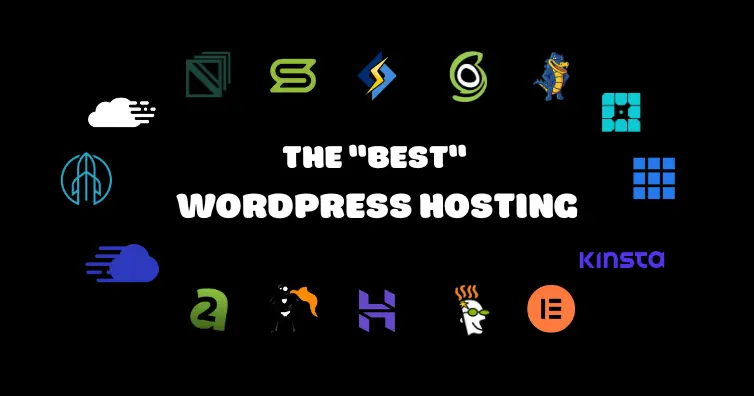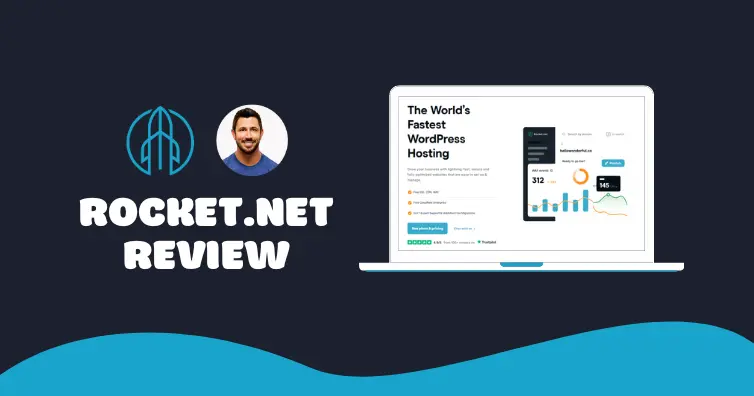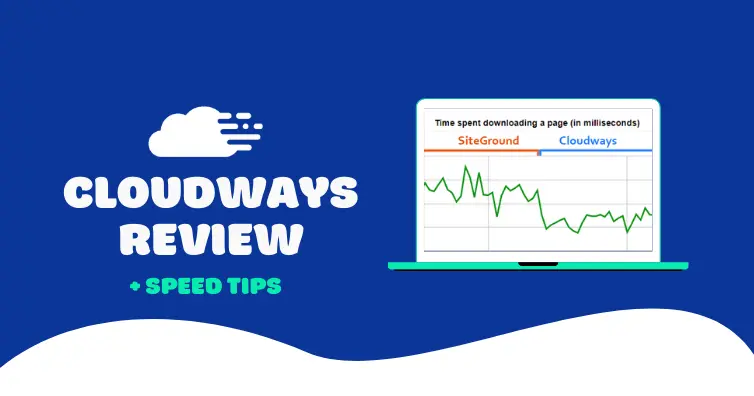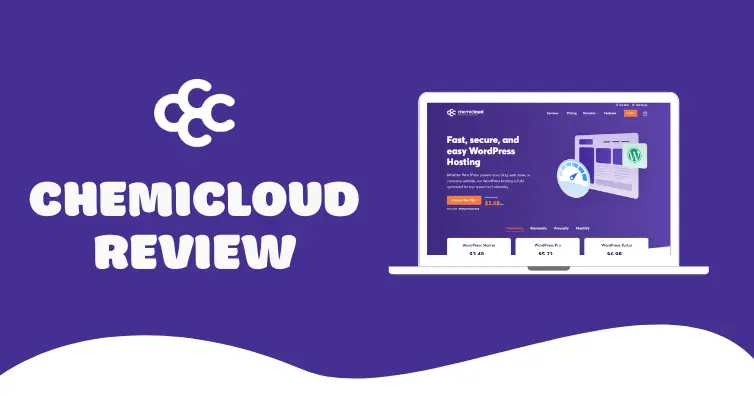
I didn’t even want to write this because “the best hosting” sounds so spammy and is usually ranked by affiliate commissions.
I guess the difference is:
- I’ve used (almost) all these.
- I spend way too much time in Facebook groups reading feedback.
- I have no problem talking about scams, fake reviews, upgrade schemes, etc.
- Yep, you caught me! I’m an affiliate, but I didn’t rank these by commissions (I have a soul).
I followed a similar format as WP Johnny by categorizing them as good or bad. Obviously the “best” is subjective, but I mainly ranked them by performance (hardware, software), resource limits, overall value, and ethics. I also took Kevin Ohashi’s WordPress Hosting Benchmarks into consideration as well as Facebook feedback, plus my 10+ years using (or testing) most of these.
Take it or leave it and drop a comment if you need help.
Good
- Rocket.net – <100ms global TTFB average and excels in all categories but price (though they often cost less than SiteGround Cloud, Kinsta, and WP Engine). You’ll have access to 32 CPU cores + 128GB RAM on all plans, NVMe SSDs, LiteSpeed’s PHP, 1GB memory limit, and Redis (Redis Object Cache Pro is available on higher plans). Thanks to Ben Gabler’s experience as Chief Product Officer at StackPath, their Cloudflare Enterprise is the most powerful CDN integration of any host and takes an “edge first” approach. It supports APO (unlike Cloudways), Argo Smart Routing (unlike FlyingProxy), faster routing, and Mirage + Polish for image optimization. This potentially means 3 less plugins between image, CDN, and security plugins. Rocket.net doesn’t limit PHP workers/inodes and includes 10x more visits/mo than Kinsta and WP Engine. Support is from a highly experienced staff who often goes outside a typical host’s scope of work. The main con is they include 50GB bandwidth on their Starter plan, so you’re essentially paying a premium for better hardware/software and high quality bandwidth on Cloudflare. Finally, they’re ethical between upfront usage-based pricing with no add-ons + hidden fees, unwarranted upgrades, or shady marketing. They do free migrations, Zoom demos, $1 your 1st month, and I did an interview with Ben. I run a blog about WordPress speed and it’s who I use – so that should tell you something.
- Servebolt – extremely fast, top performer in Kevin’s Ohashi’s benchmarks for plans over $99/mo, and what many large companies like Rank Math use. They utilize NVMe, MariaDB, and the Servebolt Optimizer plugin. The main cons are price, low storage, and Cloudflare Enterprise (accelerated domains) is $299/mo. If your hosting budget is $400/mo between your plan and accelerated domains, it makes them somewhat comparable to Rocket.net. But instead of bandwidth being their main limitation, it’s storage and dynamic requests.
- NameHero / ChemiCloud / FastComet – all 3 offer shared LiteSpeed hosting on cPanel and are good alternatives to SiteGround, Hostinger, and Bluehost. NameHero uses NVMe SSDs in their US center and I generally suggest their Turbo WordPress plan which uses 3 cores + 3GB RAM and Redis. ChemiCloud’s WordPress Turbo plan is similar but they have more data centers (9/11 of which use NVMe SSDs) and have a Turbo+ Boost add-on that lets you scale cores/RAM from 3/3 to 6/6. So while both make you sign up for 3 years to get the cheapest price, you have more regions and scalability on ChemiCloud. However, they use Memcached when Redis is arguably faster. FastComet uses SATA SSDs on shared plans but includes 6 cores + 6GB RAM on their FastCloud Extra plan which is cheaper, plus they have flexible pricing. All 3 have 500k inodes on their third highest plan. With any of these, you’ll use the free LiteSpeed Cache plugin (which does an excellent job with core web vitals) and QUIC.cloud CDN, ideally the paid/standard plan which uses all 81 PoPs + DDoS protection. All have a good TrustPilot rating and while they have the typical resource limits that come with shared hosting, LiteSpeed is efficient and can handle roughly 2x the traffic as Apache. Support is significantly better than what you get with hosts like SiteGround and Hostinger.
- Scala Hosting – their Entry WP Cloud plan is a nice middleground if you want LiteSpeed, but want a step up from shared without the higher price/complexity of a VPS (while still getting guaranteed/isolated resources, a dedicated IP, etc). They don’t charge separately for a LiteSpeed license like NameHero/ChemiCloud do on VPS plans. Scala uses their own sPanel which is like cPanel but uses less resources and has several advantages which you can see by clicking “compare all features” on their cloud VPS page. Like NameHero, Scala only uses NVMe SSDs in their US data center (New York), but they’re planning on adding NVMe to other locations soon. 5/5 stars on TrustPilot, great support, ethical, and the CEO (Chris) is clearly passionate about his business. And yes, they have high aff commissions.
- GridPane – if you manage 100+ sites, look at GridPane (they’re not for smaller sites since prices start at $500/mo). You can choose from several cloud providers like UpCloud, Vultr, and DigitalOcean, then choose OpenLiteSpeed or Nginx servers. It’s 100% worth watching this interview with Patrick Gallagher (GridPane) and Ben Gabler (Rocket.net) who are 2 of the smartest people in the industry. Maybe you’ve never heard of them because there’s no affiliate program, but they have solid reviews and a stellar reputation in Facebook groups. And very similar to Rocket.net, GridPane’s support, innovation, and ethics are all excellent.
- RunCloud – popular control panel with OpenLiteSpeed, then pick from DO, AWS, Linode, Vultr, UpCloud, and Google Cloud. Cheaper and faster than Cloudways but is more hands-on. Starts at $6.67/mo for 1 server and has server-side cache with both Redis/Memcached.
- Cloudways – pushed them down the list for a few reasons. Since they were acquired by DigitalOcean, they raised prices especially for Vultr and non-DigitalOcean providers like Vultr. Cloudflare Enterprise still doesn’t support APO even though they’ve said “coming soon” for more than a year, plus it serves annoying challenge pages. Their support and Breeze plugin aren’t great and scaling is expensive (no matter how much CPU/RAM you add, you’re paying at least 2x compared to DigitalOcean/Vultr’s website). Which means you’re paying increasingly extra fees for their control panel. Still a better alternative to SiteGround and similar hosts with features like NVMe SSDs, Redis Object Cache Pro, and their Cloudflare Enterprise is still very powerful. And unlike Rocket.net, they include a lot more bandwidth. However, bandwidth is lower quality, you get way less CPU/RAM (which can lead to high CPU usage), significantly worse support, and they copied Rocket.net’s Cloudflare Enterprise which still lacks APO, is charged as a $5/mo add-on, and is inferior.
- JohnnyVPS – WP Johnny’s hosting company which has excellent Facebook reviews. And of course, it’s fast! They use LiteSpeed with email hosting and no CPU limits (unlike other hosts). The pricing is fair, and “honest” is the main word people use to describe them. The main downside is Johnny openly says they offer little to no tech support, so it’s more DIY. I do wish there were more specs listed, but then again, Johnny claims that’s a secret sauce.
- MechanicWeb – ugly site but consistently a top performer in Kevin Ohashi’s WordPress Hosting Benchmarks in several price ranges. They offer shared, semi-dedicated, and VPS options with NVMe storage, High Frequency compute, LiteSpeed, cPanel, and Cloudflare.
- A2 Hosting – they’ve had issues with downtimes and a 2 week ransomware attack back in 2019, otherwise they’re a decent budget option. You definitely want the Turbo Boost plan (or higher) since it uses LiteSpeed, NVMe, and has more cores/RAM with AMD EPYC servers.
- Krystal Hosting – UK-based LiteSpeed hosting on cPanel (or Krystal’s custom built Onyx). However, you have to use their $50/year Sapphire plan (or managed WordPress Hosting) to get NVMe SSDs. And even the Sapphire plan only has 3 cores/3GB RAM. I’ve also seen a few complaints their performance isn’t amazing and several people prefer GURU instead.
Bad
- SiteGround – in case you didn’t notice, they’re doing everything they can to rip you off. They replaced Cloudflare with a $14.99/mo CDN, increased prices (twice) with up to 6x renewals after 1 year, now charge $30/site for migrations, replaced cPanel with a buggy Site Tools just weeks after cPanel increased prices, tried to limit # of sites on each plan, use sensitive CPU limits to take down your sites until you upgrade, cut back on support, and removed services in unprofitable countries. SiteGround is clearly in it for the money, not their customers. They also have a history of TTFB issues (which they deny) and their DNS got blocked by Google for 4 days, causing 2M+ domains to get deindexed which was blamed on Google & Amazon. How come you don’t hear about these stories? SiteGround covers these up by threatening people with cease and desist letters and hiring Facebook group admins to censor posts and promote their hosting (that’s why they’re “popular” in these groups). They say their SiteGround Optimizer plugin is the best cache plugin to use on SiteGround, but it does a terrible job optimizing core web vitals and doesn’t support key features like removing unused CSS or delaying JavaScript. SiteGround’s cloud hosting is insanely overpriced at $100/mo, doesn’t use NVMe SSDs, and often has worse CPU limits than their GoGeek plan. I used to be one of their first super affiliates and referred about 3k people to them. Now that they fail nearly every category, I highly recommend avoiding SG.
- Hostinger – multiple scam reports (including on TrustPilot) about renewals, charging for items listed as “free,” and advertising way more sites/storage/bandwidth than servers can handle. Their CEO admitted to fake reviews, employees pretend to be “real customers” to trick people into using them, and they were banned from Facebook groups. Worst support I’ve seen of any of these hosts with frequent downtimes. One reason Hostinger is so cheap is you get less CPU/RAM and only 1GB email storage. Hostinger… you get what you pay for.
- Kinsta – unlike Rocket.net, Kinsta limits PHP workers, includes 10x less visits/mo, charges $100/mo for Redis (not even Redis pr), $50/mo for Nginx reverse proxy, gives you access to 16x less RAM, limits staging sites to 1 core, uses SATA SSDs, and the Cloudflare integration only includes APO with firewall rules. They also use a “premium DNS” (Route 53) which is slower than Cloudflare’s. No wonder their TrustPilot rating tanked. Just because they use big names like Google Cloud, Cloudflare, and Amazon doesn’t mean it’s fast (they’d be in Kevin Ohashi’s tests if they were). They’re a marketing company that got into hosting and it’s how they got big. Just another case where you shouldn’t believe everything you hear.
- WPX – dubbed themselves the “fastest WordPress hosting” while referencing bogus tests from Matthew Woodward that were ranked by affiliate commissions. Last time I checked, aiming for a <400ms TTFB isn’t very fast. It’s essentially high end shared hosting with the same old SATA SSDs, 1 core + 1GB RAM on their lowest plan, no object cache, and a CDN (called XDN) that only has 36 PoPs without full page caching. WPX is also unreliable. Not only do they have downtime problems, but they don’t have a redundancy system. This already caused a global outage where WPX blamed their partner (Steadfast), calling out their CEO who died just months earlier. A clear sign they’re out of touch with the industry. Definitely not designed for WooCommerce sites (no Redis, NVMe, low PHP workers, and 3 data centers without full page caching or Argo on their CDN). It was a marketing gimmick.
- Elementor Cloud – just like Kinsta, it’s a hosting service that originated from something completely different (always a red flag). It looked promising with Google Cloud C2 but the performance is very bad. They also have low storage, bandwidth, and monthly visit limits. A one-size fits all hosting plan for $99/yr (with little specs listed) isn’t something you want.
- GreenGeeks – quite a few scam reports about how hard it is to cancel your plan since you have to send them a chain of emails. They advertise unlimited websites/storage but have many complaints about low limits. While they’re a top performer in Kevin’s benchmarks, their poor ethics, support, and bad TrustPilot reviews paint a different picture reflecting a lower quality service. I guess for super low budget, they’re most comparable to Hostinger.
- Newfold Digital Brands (Bluehost + HostGator) – formerly EIG, Newfold Digital owns 80+ companies with Bluehost/HostGator being 2 popular hosts. Newfold has a long reputation of buying out good hosting companies then running them into the ground. They’re pretty much all the same – cheap shared hosting on overcrowded servers with SATA SSDs, poor support, downtimes, low inode limits, and inefficient technology which results in a slow site and CPU throttling from limited resources. Also reports of Sitelock scams. They rely heavily on affiliate marketing which is usually targeted at noobs who don’t know better, and WordPress only “officially recommends” Bluehost because Bluehost pays to be there.
- WP Engine – does anyone even use WPE anymore? Everyone I know moved to something like Rocket.net, Kinsta, GridPane, or RunCloud. They tout themselves as the “unequivocal performance leader in WordPress” just because they use Google Cloud C2 (which Kinsta already uses). One of the biggest problems is their low bandwidth limits which are similar to Rocket.net’s, only it’s about 10x less monthly visits. They also charge an arm and leg for overages while Rocket.net has soft limits and doesn’t pull that crap. They hardly list any specs on their website which is usually a red flag. Decent for their time, but not anymore.
- GoDaddy – I saw the nickname “SlowGoDaddy” multiple times which is fitting. Even their DNS is one of the slowest on dnsperf.com (so if you registered your domain with them, be sure to change your DNS to something like Cloudflare). It’s completely overpriced for the technology/resources you get (overcrowded servers, cores/RAM, inodes). Seems like they have a security breach every year, but they have a catalog to ‘fix’ things. Constant upsells, extremely limited dashboard, blacklisted plugins… not sure why anyone would use them.
Specs
Good LiteSpeed Hosting Plans:
| FastComet FastCloud Extra | NameHero Turbo WordPress | ChemiCloud WordPress Turbo | Krystal Managed WP Business 1 | Scala Entry WP Cloud | |
|---|---|---|---|---|---|
| Type | Shared | Shared | Shared | Cloud | Cloud |
| Cores/RAM | 6 cores/6GB | 3 cores/3GB | 3 cores/3GB (scalable to 6/6) | No limits | No limits |
| Storage type | 35GB SATA | Unlimited NVMe (US data center) | 40GB NVMe (9/11 data centers) | 10GB NVMe | 50GB NVMe (US data center) |
| Database | MySQL | MariaDB | MariaDB | MariaDB | MariaDB |
| Object cache | Memcached | Redis | Memcached | Redis | Redis |
| Data centers | 11 | 2 (US + EU) | 11 | UK only | 3 (US + EU) |
| Server | LiteSpeed | LiteSpeed | LiteSpeed | LiteSpeed | LiteSpeed |
| Cache plugin | LiteSpeed Cache | LiteSpeed Cache | LiteSpeed Cache | LiteSpeed Cache | LiteSpeed Cache |
| CDN | QUIC.cloud ($.02-.08/GB) | QUIC.cloud ($.02-.08/GB) | QUIC.cloud ($.02-.08/GB) | QUIC.cloud ($.02-.08/GB) | QUIC.cloud ($.02-.08/GB) |
| Control panel | cPanel | cPanel | cPanel | cPanel | sPanel |
| Email storage | 2.048GB | Adjustable | Adjustable | £4.99/mo | Adjustable |
| Inodes | 500,000 | 500,000 | 500,000 | Unlimited | Unlimited |
| Major incidents | 2022 DDoS attack on 3 data centers | 2011 2-day node outage | None | None | None |
| Migrations | 3 free | 1 free | 200 cPanel + 10 non-cPanel | 50 cPanel + 10 non-cPanel | 1 free |
| Support | B | B | B | B | B |
| TrustPilot rating | 4.9/5 | 4.6/5 | 4.9/5 | 4.9/5 | 4.9/5 |
| Monthly price | $5.49 (1-3 years) | $9.98 (3 years) | $5.99 (3 years) | £35 (monthly) | $14.95 (3 years) |
| Renewals | $21.95/mo | $19.95/mo | $19.95/mo | £35/mo | $24.95/mo |
Popular Cloud Hosting Plans (Last 2 Are Better, Especially For WooCommerce):
| SiteGround Cloud Jump Start Plan | Kinsta Starter Plan | Cloudways Vultr HF (2GB) | Servebolt Pro Plan | Rocket.net Starter Plan | |
|---|---|---|---|---|---|
| Type | Cloud | Cloud w/ shared containers | Cloud | Cloud | Private cloud |
| Server | Apache + Nginx | Apache + Nginx | Apache + Nginx | Apache + Nginx | Apache + Nginx |
| Cores/RAM | 4 cores/8GB | 12 cores/8GB | 1 core/2GB | Unmetered | 32 cores/128GB |
| Reverse proxy | ✓ | $50/mo | ✓ | ✓ | ✓ |
| Storage | 40GB SATA | 10GB SATA | 64GB NVMe | 4GB NVMe | 10GB NVMe |
| Object cache | Memcached | Redis ($100/mo) | Redis Pro | x | Redis |
| PHP processor | FastCGI | FastCGI | FPM | Apache 2 ITK MPM | LiteSpeed |
| PHP workers | CPU limits + suspensions | 2 | No limit | No limit | No limit |
| Memory limit | Adjustable | 256MB | Adjustable | 1GB | 1GB |
| Database | MySQL | MySQL | MariaDB | MariaDB | MariaDB |
| CDN | $14.99/mo SiteGround CDN | Cloudflare APO + firewall rules | $5/mo Cloudflare Enterprise | $299/mo Cloudflare Enterprise | Free Cloudflare Enterprise |
| CDN locations | 176 | 285 | 285 | 285 | 285 |
| Full page cache | ✓ | ✓ | x | ✓ | ✓ |
| Smart routing | Anycast | x | Argo | Argo | Argo |
| Images | Limited | x | Mirage/Polish | Mirage/Polish | Mirage/Polish |
| DNS | Blocked by Google (4 days) | Route 53 | DNS Made Easy ($5/mo) | x | Cloudflare |
| Cache plugin | SG Optimizer | Use FlyingPress | Breeze | Servebolt plugin | Use FlyingPress |
| Data centers | 10 | 35 | 44 | 7 | Served from Cloudflare edge |
| Bandwidth or monthly visits | 5TB | 25k | 2TB | 1M dynamic requests | 50GB + 250k |
| Control panel | Site Tools | MyKinsta | Custom (hard) | Servebolt Panel | Mission Control |
| Email hosting | ✓ | x | x | x | x |
| Major incidents | History of TTFB, DNS, CPU issues | None | None | None | None |
| Support | C | B | C | B | A |
| Migrations | $30/site | Unlimited free | 1 free + $25/site | Unlimited free | Unlimited free |
| TrustPilot rating | 4.6/5 | 4.2/5 | 4.5/5 | 4.7/5 | 4.9/5 |
| Price | $100/mo | $29/mo when paying yearly | $35/mo with CF Enterprise | $99/mo | $25/mo when paying yearly |
Bad Hosting Plans:
| SiteGround GrowBig | Hostinger Business WP | GoDaddy Managed WP Deluxe | Bluehost Choice Plus | WPX Business Plan | |
|---|---|---|---|---|---|
| Type | Shared | Shared | Shared | Shared | Shared |
| Server | Apache + Nginx | Apache + Nginx | Apache + Nginx | Apache + Nginx | LiteSpeed |
| Cores/RAM | Not listed | 2 cores/1.5GB | 2 cores/1GB | Not listed | 1 core/1GB |
| Storage | 20GB SATA | 200GB SATA | 60GB SATA | 40GB SATA | 15GB SATA |
| Database | MySQL | MariaDB | MySQL | MySQL | MariaDB |
| Object cache | Memcached | Memcached | Memcached | x | x |
| Data centers | 10 | 8 | 9 | 6 | 3 |
| Cache plugin | SG Optimizer | LiteSpeed Cache | x | x | W3 Total Cache |
| CDN | SiteGround CDN ($14.99/mo) | QUIC.cloud ($.02-.08/GB) | GoDaddy CDN (free) | Cloudflare (free) | XDN (free) |
| CDN locations | 176 | 81 | Not listed | 285 | 36 |
| Full page caching | ✓ | ✓ | x | x | x |
| Control panel | Site Tools | hPanel | cPanel | cPanel | WPX Panel |
| Email storage | 10GB | 1GB | 10GB | Adjustable | Not listed but frequent issues |
| Inodes | 400,000 | 600,000 | 250,000 | 200,000 | At discretion |
| Major incidents | TTFB, DNS, CPU issues (denies it) | Downtimes scams, fake reviews, breach | Malware, several data breaches | Downtimes | Downtimes, global outage |
| Migrations | $30/site | Unlimited (but screws it up) | Paid | “Qualified” accounts only | 5 free |
| Support | D | F | D | D | B |
| TrustPilot rating | 4.6/5 | 4.6/5 (fake) | 4.7/5 | 3.8/5 | 4.9/5 |
| Monthly price | $3.99 (1 year) | $3.99 (1-4 years) | $10.49 (2 years) | $5.45 (1 year) | $20.83 (1 year) |
| Renewals | $24.99/mo | $8.99-$14.99 | $14.99/mo | $19.99/mo | $20.83 |
Measuring Hosting Performance & TTFB
- SpeedVitals TTFB Test – measure TTFB in 35 global locations (shown as “average worldwide TTFB”) but the developers say to run a couple tests to ensure resources are cached and your CDN serves files from the closest data center. Basically, run 3 tests and check the average worldwide TTFB of the 3rd test. Hosting/CDNs are the 2 biggest factors.
- WordPress Hosting Benchmark – runs CPU, memory, database, object cache, and network tests to give you an overall score out of 10. Here’s a screenshot of the test I ran.
- WP Server Health Stats – doesn’t measure performance but shows stats about your server (software, CPU cores + CPU usage, RAM + RAM usage, database and PHP info, etc).
How To Find (Kind Of) Unbiased Hosting Reviews
- Kevin Ohashi – WP Hosting Benchmarks and Review Signal are some of the most unbiased reviews and performance tests I’ve seen. Instead of making money through affiliate commissions, Kevin charges hosts a flat fee to be included in his extensive tests.
- WP Speed Matters Facebook Group – probably the least biased group when it comes to hosting and general speed recommendations. It’s run by Gijo (from FlyingPress and FlyingProxy) so there’s undoubtedly some biased there, but much less than other groups.
- TrustPilot – I like reading 1 star reviews to see what people complain about. But not very trustworthy considering most positive reviews are solicited, but can still provide insight. For example, Kinsta’s rating went down after they started screwing more customers over.
- Stay away from most paid blogs, Facebook groups run by affiliates or hosting companies (WordPress Hosting, WordPress Speed Up, Elementor, WP Beginner, WP Rocket). Also stay away from recommendations from Matthew Woodward, Darrel Wilson, WP Beginner, and most hosting review sites (besides Review Signal). Many people don’t even disclose they work for a hosting company, so always do a background check and do your own research.
Get Your Hosting From A Hosting Company
Not Elementor Cloud, NameCheap, GoDaddy, Kinsta, and other companies who started as something else (page builder, domain registrar, marketing company) then went into hosting.
Hosting Is The #1 Speed Factor
WordPress has always listed this as the #1 factor (although their hosting recommendations are paid garbage) and TTFB is also 40% of LCP in core web vitals. I see a lot of people complaining about web vitals not thinking hosting is the problem, then they switch and see instant results. CDNs are arguably just as important for reducing TTFB and is why you should use a performant CDN like Cloudflare Enterprise, QUIC.cloud, or BunnyCDN (not RocketCDN or SiteGround CDN).
How Important Is Choosing A Close Data Center?
The difference is minimal as long as you’re using a CDN with full page caching as well as other CDN features to improve content delivery. But if you don’t plan to use these, it’s still important.
Final Thoughts – small static sites can get away with shared hosting (just try to use LiteSpeed) while WooCommerce/dynamic sites should go straight to cloud. I would even argue sites using Elementor/Divi should use cloud hosting since you’re already slowing down your site with extra CSS/JavaScript. Each host’s technology plays a large role, but it’s often found on inner pages or a blog post. And if you can’t find this anywhere, chances are it’s probably not the best or fastest.
Cheers,
Tom





Great article! thanks for sharing.
I am using InMotion for the past few years, but as my websites gets bigger, the shared server keeps having internal 500 error. Do you mind recommending a better hosting which provides a better speed and technical support?
ChemiCloud’s WordPress Turbo plan is generally the shared plan I recommend, both speed/support should be better than InMotion.
Excellent post Tom your blog has helped me get out of siteground and use better plugins now my ecommerce is flying .
I want to ask you A few months ago I changed to mechanic web ato the top of semi-dedicated hosting plan based on your experience, do you think it is a good option or NameHero / ChemiCloud / FastComet/Rocket for the price is better for woocommerce
I haven’t really gotten around to testing MechanicWeb but I’ve heard they’re solid. Can’t really give a comparison at the moment though. For WooCommerce I generally recommend skipping shared hosting all together and using something like Vultr HF or Rocket.net. If it’s shared I would probably lean towards ChemiCloud or NameHero who has Redis. If Mechanic Web is working for you, no need to fix something that isn’t broken.
You don’t mention Dreamhost anywhere. Is that good, bad or they just haven’t been on your radar?
I’ve been using them for nearly 3 years but I’m not doing much with my websites, so I have no idea how good they really are. I’d be interested in a critical opinion. Time to renew my hosting is coming, and I’m looking around for a cheaper option. I don’t feel like paying full price when I only have a few landing pages that get about a dozen visitors per month, at best.
They haven’t been much on my radar. If it’s shared hosting, I think the LiteSpeed setup should outperform them. But I will try to do a more in-depth review of them soon.
Good Post.
Do you know Hetzner Hosting?
Is good for WooCommerce?
I see that there is a good performance.
Thanks
They’re on my list of hosts to try so I can’t give an opinion on them yet. At the same time, I don’t see how they could beat an average <100ms global TTFB. For WooCommerce, you really want to use Redis Object Cache Pro and Argo Smart Routing.
Hi Tom,
Too bad I just bumped to your blog after years of problems with most of your “bad” hosting list . I rarely comment on a blog, but yours is an exception.
Thank you for your honest review of hosting and I found most of the good hosting you mentioned I never heard of LOL . Maybe because I watch too much Darrel YT
Awesome blog!!
Hey Daniel,
Well thanks for taking the the time to comment! Yeah his “Pingdom speed tests” only test 1 location (probably with all different data center locations) and he barely talks about hardware, software, CDN integrations, scam reports, etc. Definitely not the full picture.
The industry is pretty much marketing/money driven and larger hosts are usually just interested in signups. But like most industries, smaller players are the ones that often provide better service/support. Lmk if I can be of help!